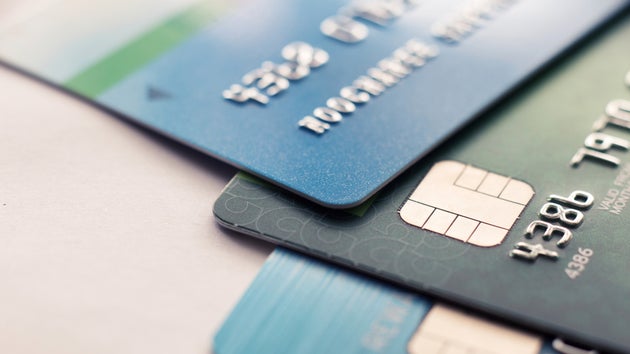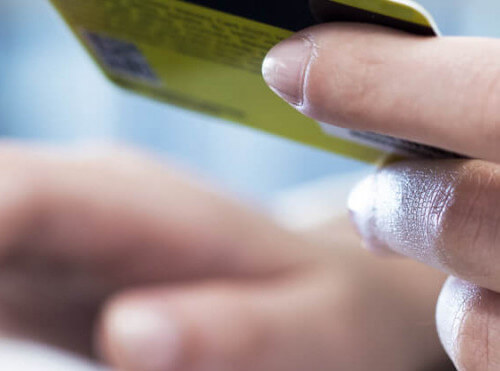Table of Contents
Interview with Gero Weber, investor and expert on cryptocurrencies, about the opportunities and risks of cryptocurrencies.
How did you hear about Bitcoin?
GW: I first became aware of Bitcoin on an Internet forum. It discussed the use of alternative digital currency to establish a payment system independent of central institutions following the horror of the financial crisis. At that time I was inspired by the basic concept of a forgery-proof, global currency.
Who is behind Bitcoin?
GW: Bitcoin is a decentralized global digital currency. Behind this is a technique called blockchain - entries on a list of value transfers. These entries are grouped in blocks and these blocks are hung on a chain. That's where the name comes from. The entries are secured by a cryptographic method to ensure that the entries can also be done legally.
What is the difference between euro, dollar and Bitcoin?
GW: The euro and the dollar, like all other FIAT currencies, are tied to one central institution. This determines how many euros or dollars are in circulation. This is the big difference between Bitcoin and conventional currencies. The maximum number of bitcoins is technically limited. Regulated inflation through new bitcoins is therefore no longer possible after the last coin has been mined.
What is the technical background of Bitcoin?
GW: Technically, Bitcoin is backed by a global network of "miners". A miner uses his computer to provide the computing power for the cryptographic calculations. The calculations are very complicated and require a lot of power. From the point of view of environmental protection, this is a legitimate criticism of Bitcoin.
Did the rise of Bitcoin surprise you?
GW: There have been many massive jumps in the past. The last big jump, in late 2017, did not surprise me in the least. So far, I do not see the much discussed bubble effect. For that, too much capital has not yet flowed into Bitcoin and the other cryptocurrencies.
How do I buy and sell bitcoins or cryptocurrencies in general?
GW: For the purchase of cryptocurrencies, such as Bitcoin, there are various marketplaces. Currently, the rush is so great that the registration and legitimacy takes quite a long time. In order to avoid money laundering, the registration for such portals is linked to an identification. Without an identity confirmation, users can only exchange between different cryptocurrencies. The purchase with Euros is much more controlled.
Are not you afraid of risks? How safe are these "coins"?
GW: Being caution with cryptocurrencies is essential, as one risks losing all stocks at once. The security of cryptocurrency technology is extremely high. However, in the past, hacking attacks on trading venues and private computers have repeatedly occurred, leading to huge amounts of money being stolen. The lack of regulation also leaves a lot of room for manipulation of exchange rates. But I am confident that with a little caution and understanding of security precautions, the crypto assets can be protected very well.
What can I buy with Bitcoin?
GW: The use of Bitcoin as a payment method itself is still in its infancy. Some big companies, who pioneered the field with bitcoins some time ago, have even partially reinstated this. The reason for this is on the one hand the high volatility of the currency and on the other hand the immature technology. For tax reasons, it is still a challenge to pay with Bitcoin because of the high value added and temporary price drops. However, one should not forget that Bitcoin and its alternative currencies are still in their infancy. Over time, both price stability and manageable payment processes can be established.
How are Bitcoin taxed?
GW: Unfortunately, I cannot give specific advice on tax issues. Since I'm not a tax consultant, I might be liable. Nevertheless, it should be said at this point that anyone who thinks of investing in cryptocurrencies has to be well informed about taxes. On the one hand, this is about the processes of purchase, on the other hand it is about the precise documentation and reporting of individual sales. Also, the exchange of one cryptocurrency in another in this context should not just dismissed rashly. A consultation with a well-informed tax consultant is helpful here even before the purchase or exchange. To document the purchases with all relevant information, you can keep tables or use dedicated online tools.
What is the future of Bitcoin?
GW: Here opinions differ widely. While I've always been right in the past, it's a fallacy to think you can predict the future. Personally, I see a future in cryptographic currency systems and believe that 2018 will be the year that once again dwarfs all past climbs. I see different reasons for this. The cash flow in cryptocurrencies is ensured by the comparatively low capitalization with other markets in the near future. The regulatory attempts, such as in China or South Korea, are confined to new currencies or trade. As a value carrier or working currency, Bitcoin is in part already recognized and approved, and the enforcement of a complete ban is rather dubious. If the financial industry, which has again taken worrying features, again falls into a crisis, the advantage of Bitcoin and other cryptocurrencies away from the current hype can exploit its advantages immediately.
Which cryptocurrency has potential? Which cryptocurrencies prevail?
GW: The search for the sleeping diamonds, which are soon earning big profits, has become almost a sport in the scene. Here one must distinguish two systems: coins and tokens, which are set up as project-oriented currencies on the infrastructure of another blockchain. Coins have their own blockchains and are independent of other infrastructures. Coins and cryptocurrencies are synonymous and mean the same thing. Examples of coins are Bitcoin and Ethereum. Developers of a special token may choose to offer the token on a swap. After the ICO (Initial Coin Offering), i.e. the initial allocation of the tokens to the public at the start of the project, the tokens can then be traded on corresponding trading venues. One example would be Indahash.
Since companies can easily set up tokens on a platform such as Ethereum, the number of potential candidates for the crown of the crypto world has increased enormously. Bitcoin has been leading the field undefeated since the beginning, but the competition is not asleep and has now captured a significant portion of the total capital. Giants like Bitcoin and Ethereum will certainly make huge profits this year again. Additionally, I think projects with good ideas and a capable team like IOTA, NEO, Monero are very promising. Among young team projects trying to establish themselves in the crypto market, I consider Indahash, Agrello, SophiaTx and High Performance Blockchain to be very promising.
Thank you for the interview.










